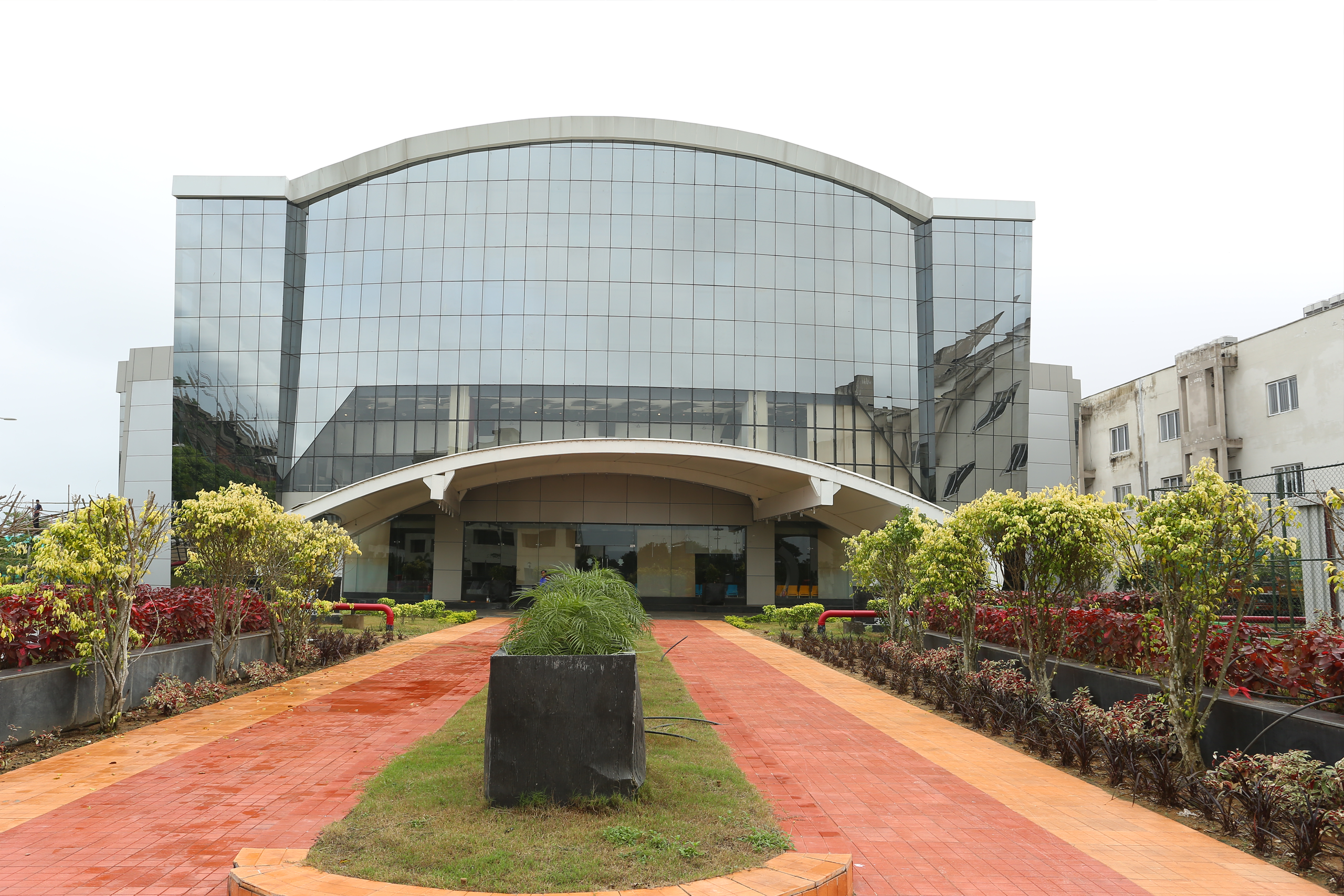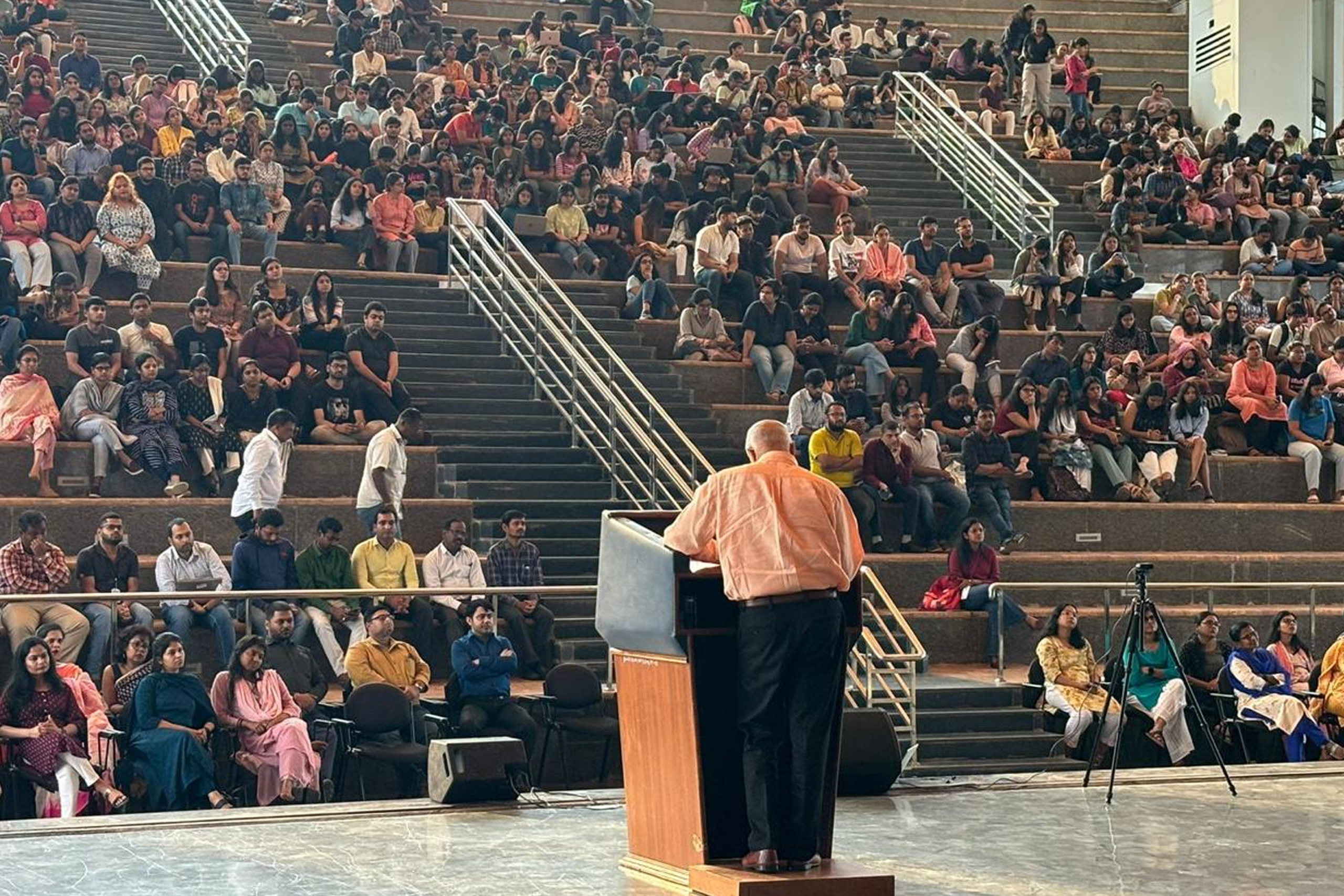“3rd CLS Credit Course – The Economics of Constitutionalism: Principles and Practice”
11 Feb 2022
Date: 22nd January 2022 – 6th February 2022???????????????????Venue: Google Meet (Online)
?he 3rd Constitutional Law Society (NLUO) Credit Course, titled “The Economics of Constitutionalism: Principles and Practice” commenced on 22nd of January 2022. With the primary aim of bridging the gap between the theoretical understanding of the economic principles and the subsequent application in public policy and law, the course hosted a panel of experts from the field of law and economics. The course was scheduled to be held on the weekends of January and first week of February, with a total duration of 20 hours. A total of 146 participants registered for the course taught by 4 course instructors from 22nd January 2022 to 6th February 2022. The course began with an orientation conducted by the Constitutional Law Society wherein the participants were apprised of the ground rules for the course and subsequently, introduced to the background of the course instructors.
On 22nd January, there were two lectures scheduled. The first lecture was conducted by Prof. Mukul Asher. It gave an introduction to the entire course structure while delving into the inter-section of Law and Economics. Prof. Mukul Asher who holds a PhD in Economics from the Washington State University, is an experienced instructor in the field of Economics. Prof Asher began his lecture with select observations on the application of principles of economics in the field of law. His lecture discussed concepts like Transactional Costs and how the different branches of it, namely search and information, bargaining, decision making, policy and enforcement are very often used by both litigants as well as the judiciary in assessing the efficaciousness of the remedy sought. The lecture saw active participation and assisted the students in strengthening fundamental concepts of constitutional economics. The second lecture of the day was delivered by Dr. K.P. Krishnan, a retired IAS officer and a renowned name in the field of economics. The lecture, ‘State, Economy and Regulation’ covered wide base and discussed concepts like pareto efficiency, the underlying consequence of market failure and its subsequent impacts. Attention was focused towards remedial measures which included a detailed discussion on modified behaviors, taxation and the reliance of expenditure in public goods for redistribution. This concluded the first day.
The next day began with Prof Asher’ session, which discussed the theme of constitutional management. The lecture started with a discussion on Coase Theorem – the problem of social cause, the theoretical dimensions of constitutional economics and further delved into the finer details of the principles of economics as discussed in the works of Mr Richard Posner. The session concluded with Prof Asher suggesting reforms in PFMs for their better and efficient functioning.
The next session for the day on “Constitutional Equality and Evolving standards in Economics” was conducted by Mr. Lalit Panda, a fellow at Vidhi Centre for Legal Policy. His lecture primarily focused on the Indian position on Article 14 of the Indian Constitution which deals with the Right to Equality, specifically manifest arbitrariness, and the idea of substantive equality in Article 15 and 16 of the Constitution. This was followed by a discussion of the problems inherent in each doctrine and the lack of clarity in how the law on equality relates with discrimination law. Mr. Panda’s lecture was a departure from the normative understanding of the constitution and delved deep into the rationale befalling the provisions of the constitution which peaked the interests of the students. The second week thus concluded on a high note.
The last leg of the course, included lectures by Dr. Suryaprakash Mishra, Assistant Professor for Economics at National Law University, Delhi who discussed the concepts based on the theme of ‘Positive Constitutional Economics’ and the ‘Economic Analysis of the Constitution’. He discussed key concepts of critical importance embedded in the constitution, the understanding of which facilitates a smooth interpretation of the constitution. This includes social contracts, principal-agent relationship, precommitment device, bundle of conventions and evolutionary process. He also elaborately engaged in a discussion for the need for rules and regulations. His lectures saw the use of extremely though provoking examples and situations like the prisoners’ dilemma game. The weekend, saw concluding lectures by Dr. Krishnan, where he furthered the discussion on statutory regulations. His navigated the lecture around the failure during the licensing raj of the Industrial Regulatory and Development Authority and the subsequent introduction of the Securities and Exchange Board of India to rectify the failures. He also discussed the structural deficits within the legislature including lack of specific expertise and the slow response to domain awareness. His lecture, known for the enriching content and thought-provoking discussions concluded with him gauging an idea of what lies ahead in term of structural reforms. The last lecture for the course on ‘Equality in Policy Making’ was taken by Mr. Panda wherein he made the students aware about the difference between law and public policy and their intersectionality and consequent overlap in application. He also discussed concepts of legal equality in policymaking, its economic analysis and the existing gaps between rules, standards and micro-directives. This lecture enabled the participants better understand the practical drawbacks and flaws in the policies and encouraged intuitive and novel solutions.
All the lectures saw an enthusiastic participation from the participants with each lecture witnessing meaningful questions and interjections. The course culminated along with a panel discussion on the topic which was open to all the participants as well as other members of the legal fraternity.





